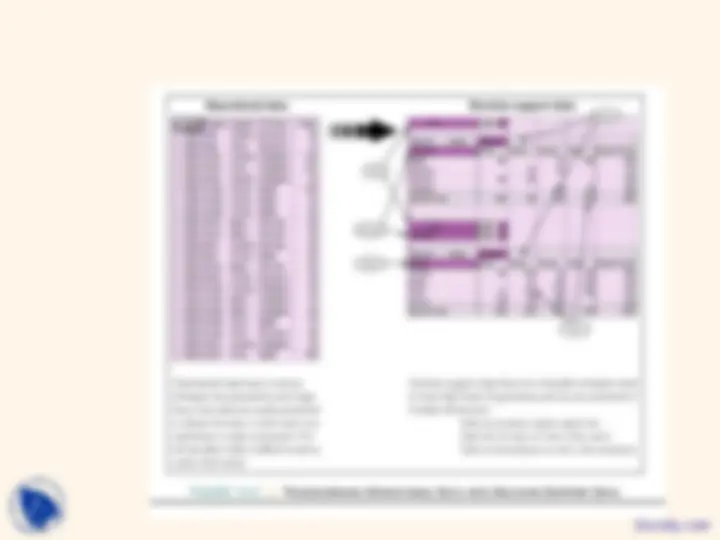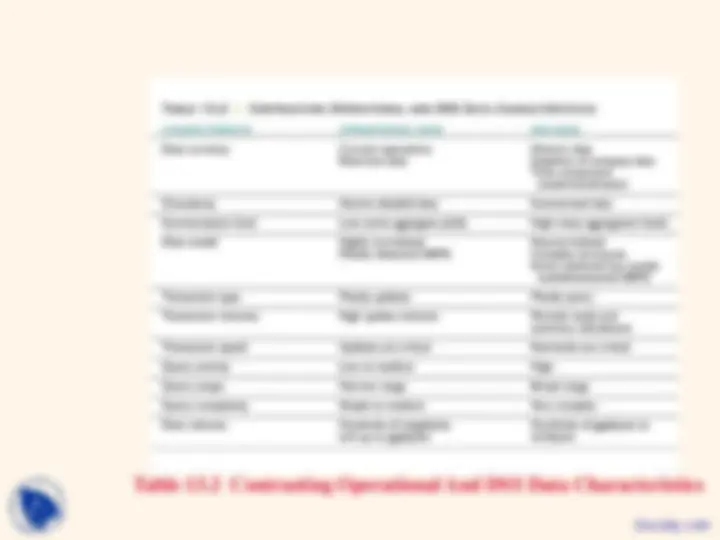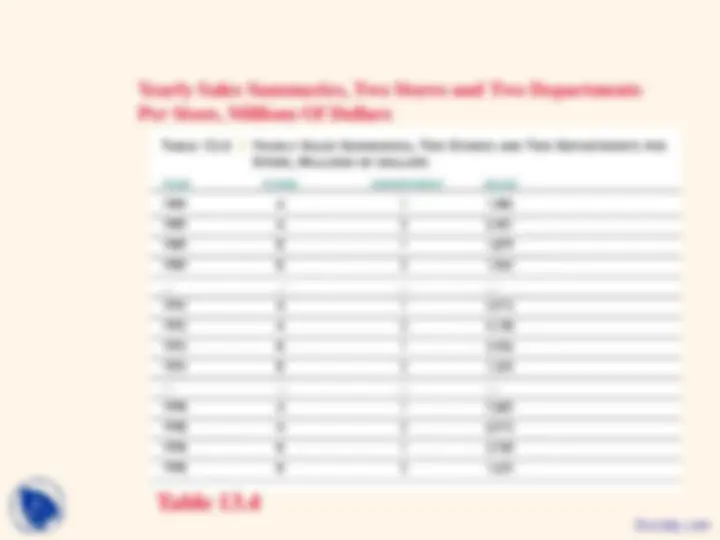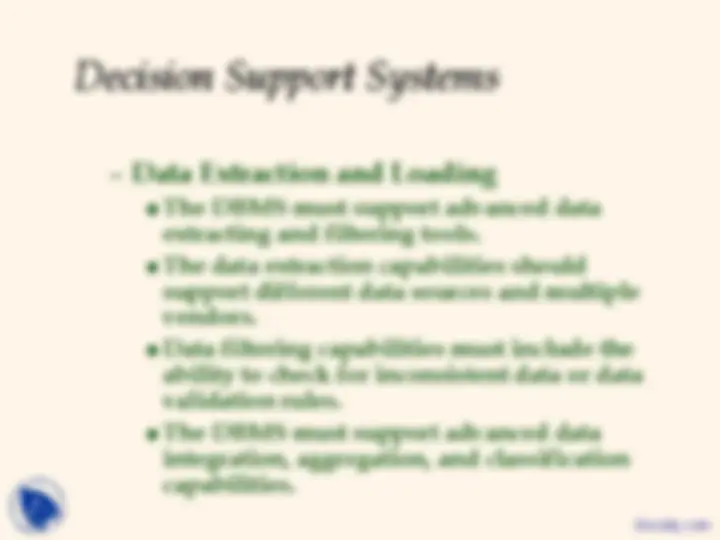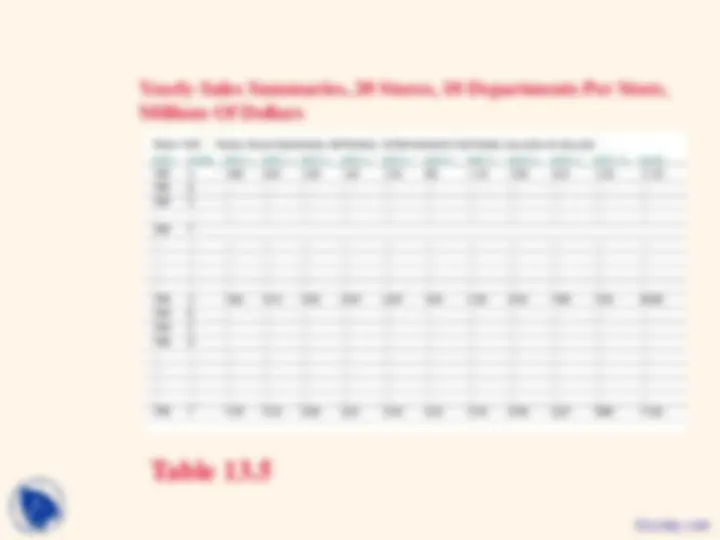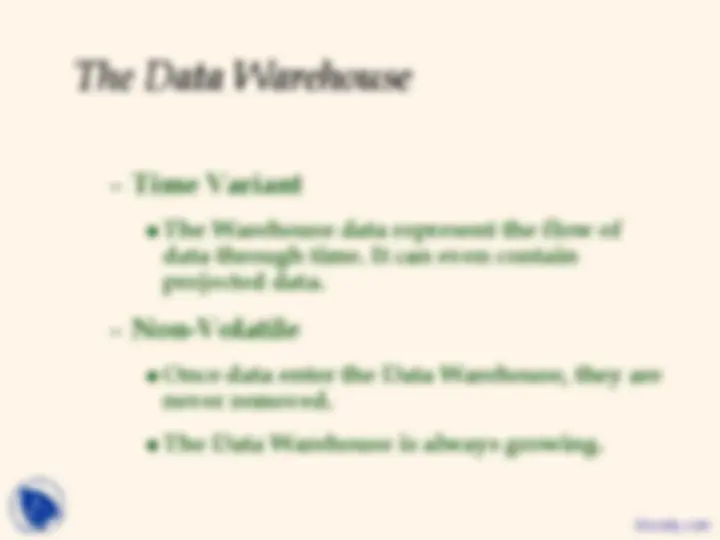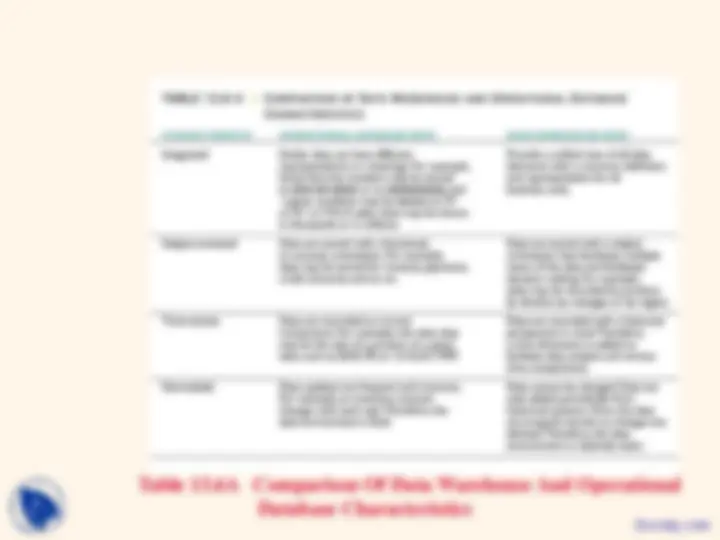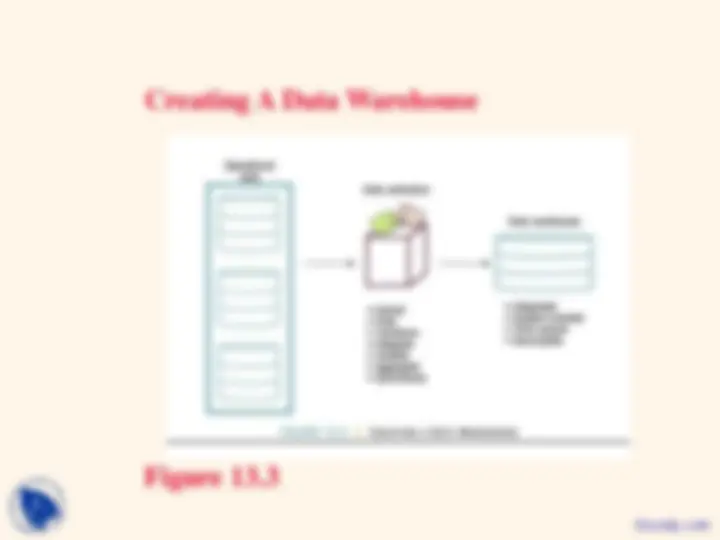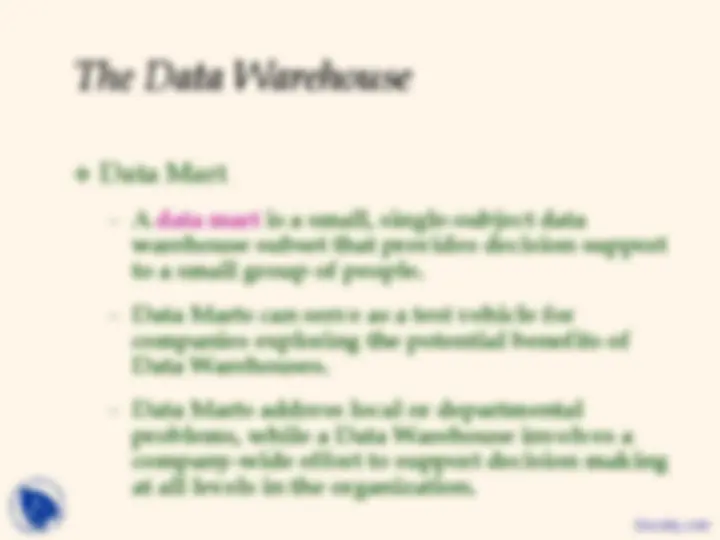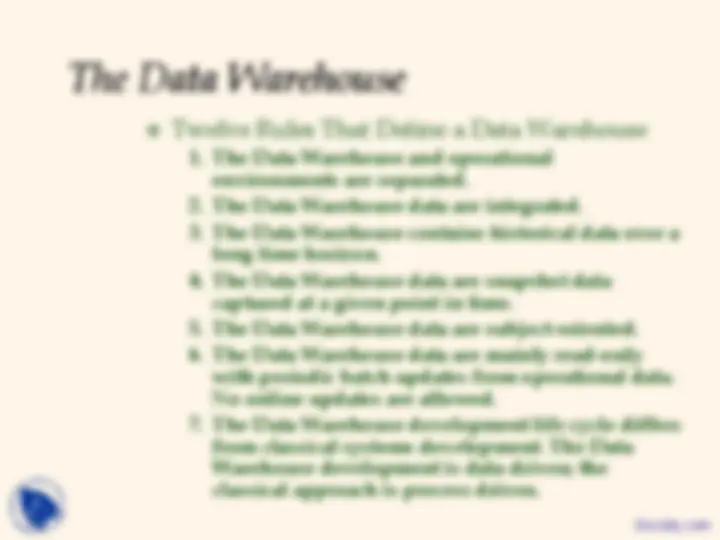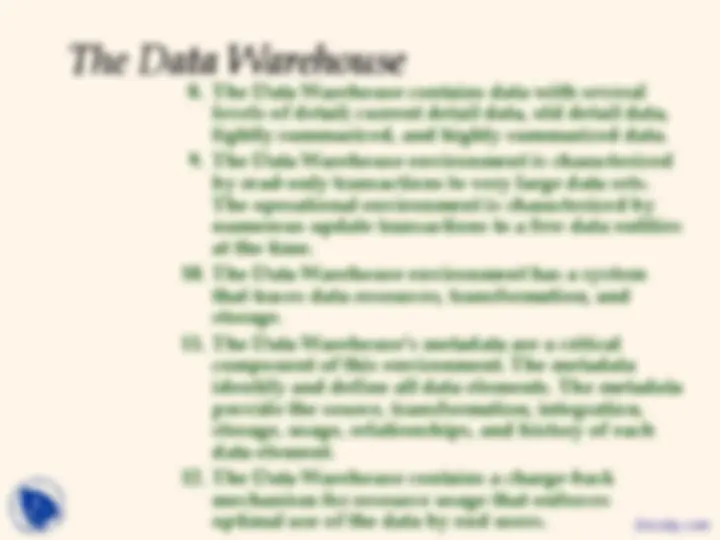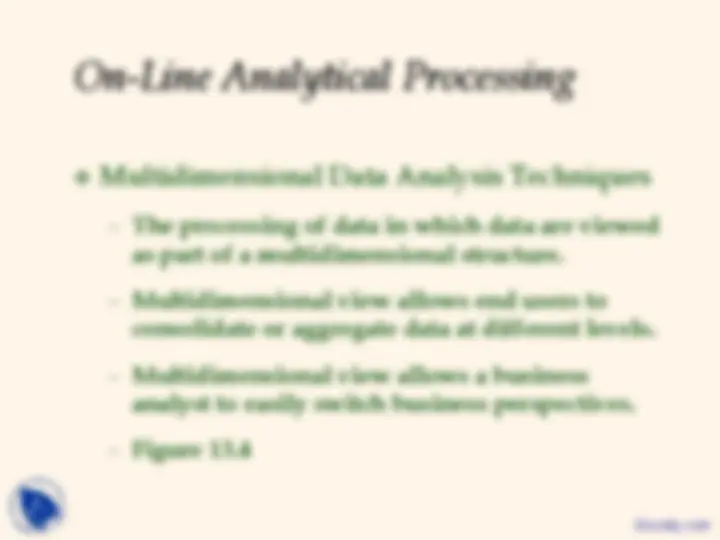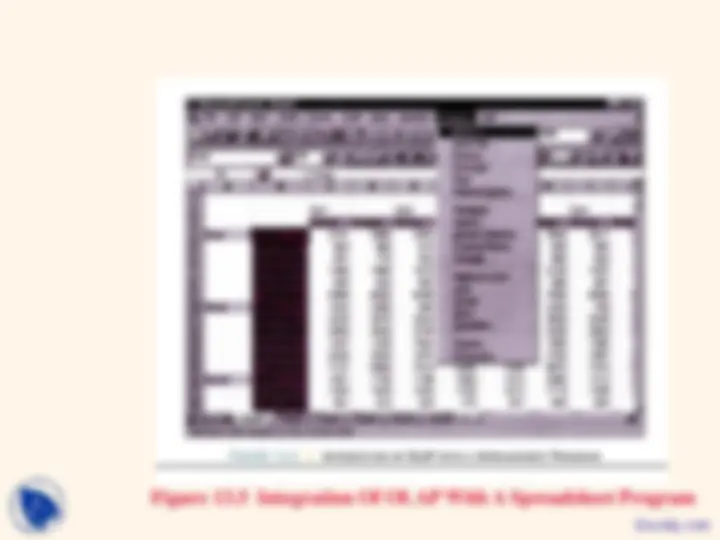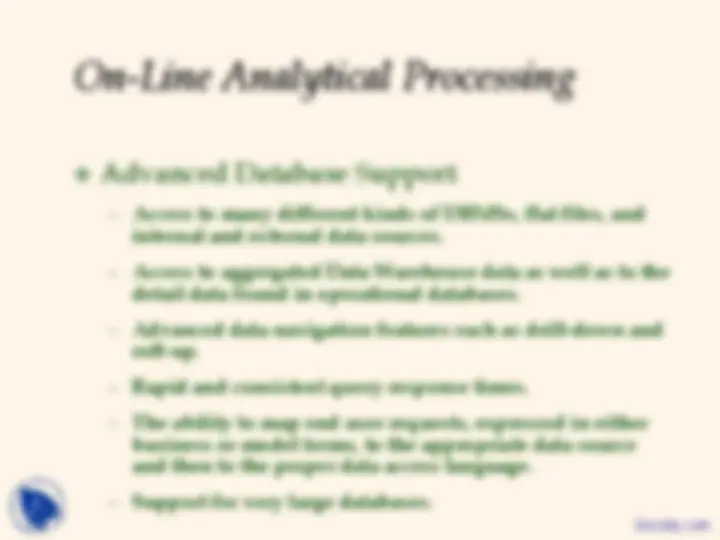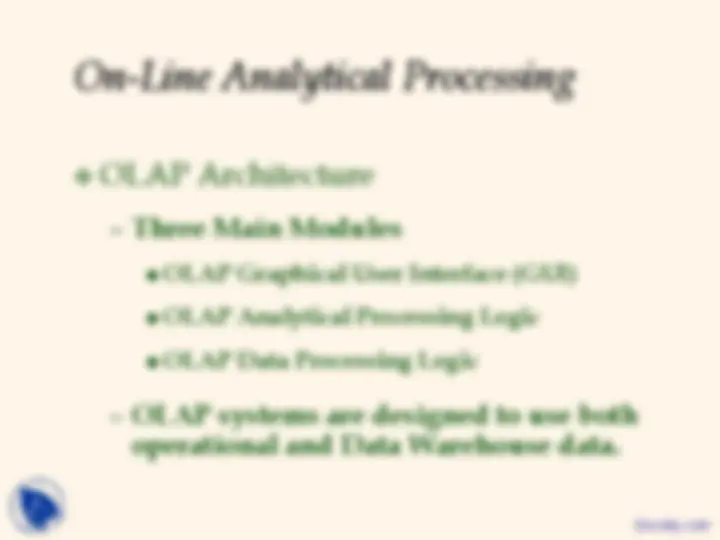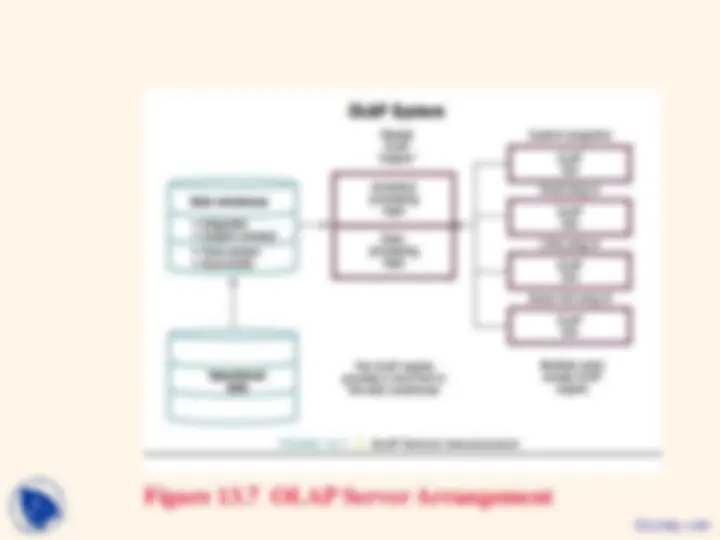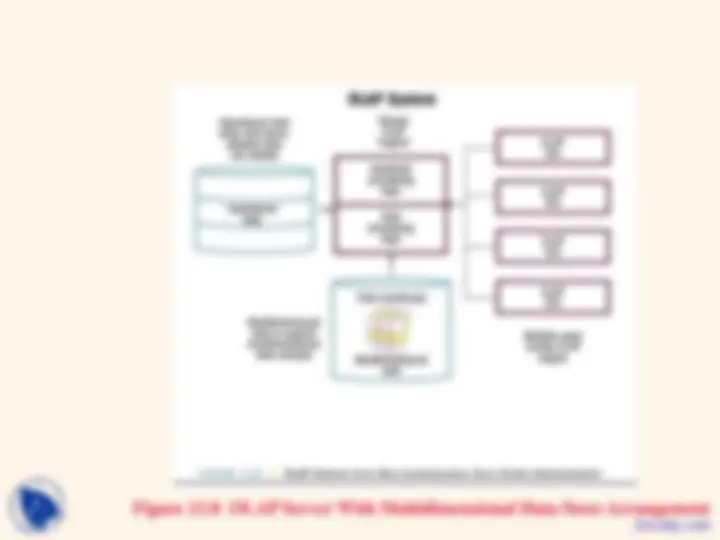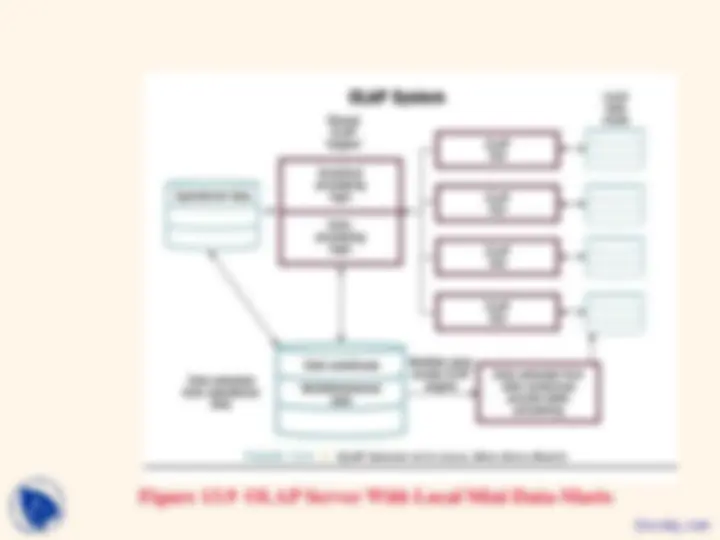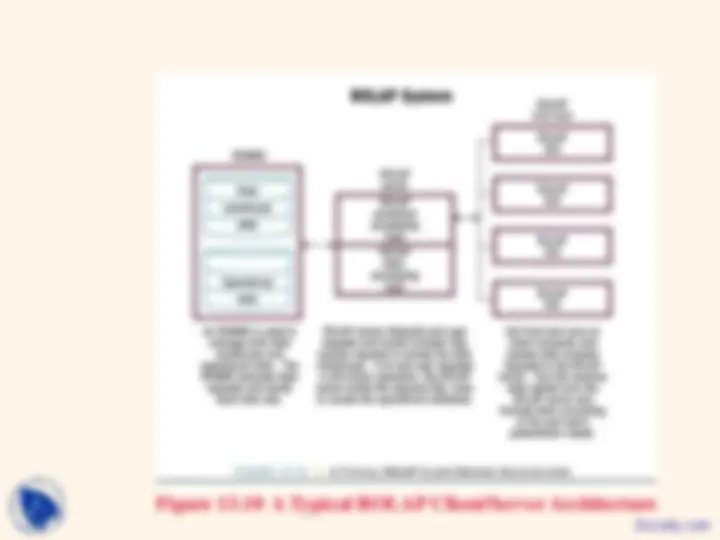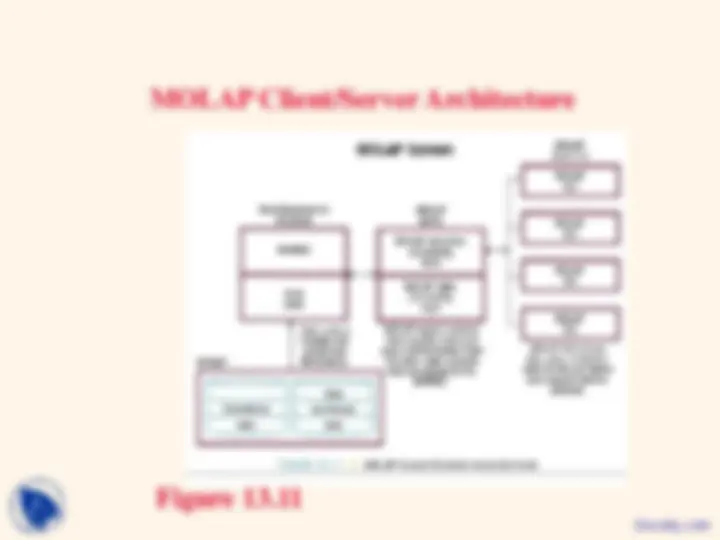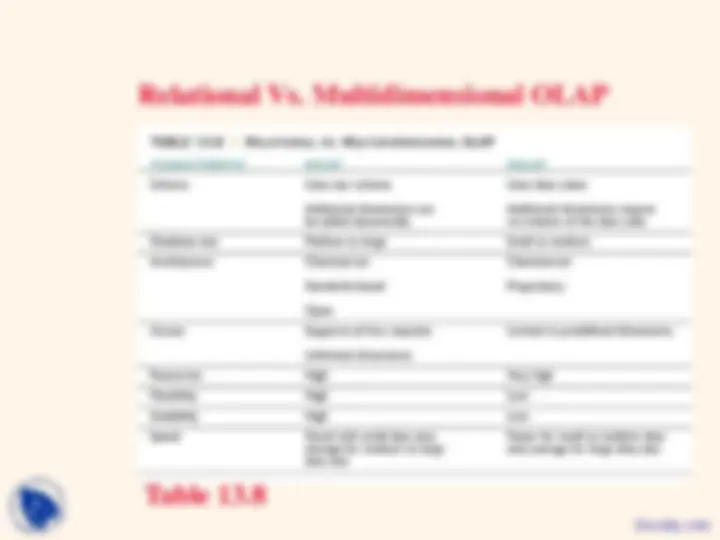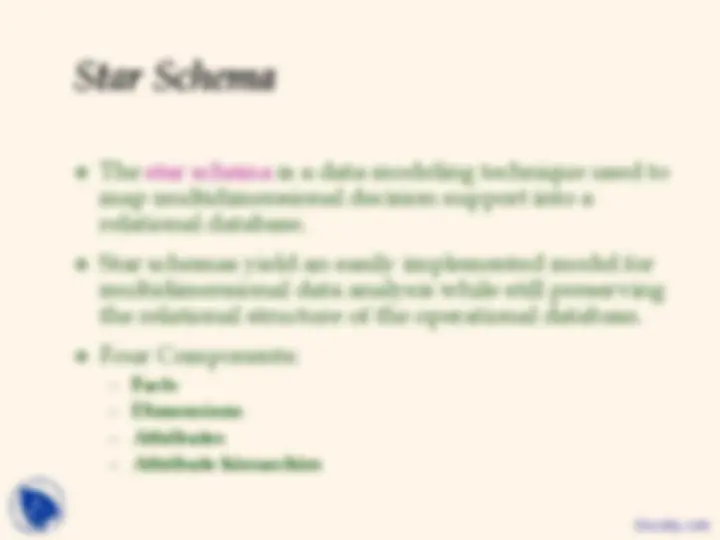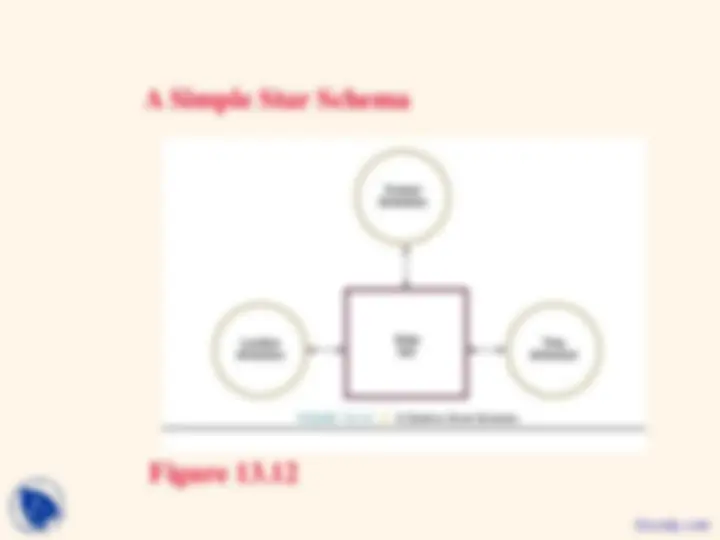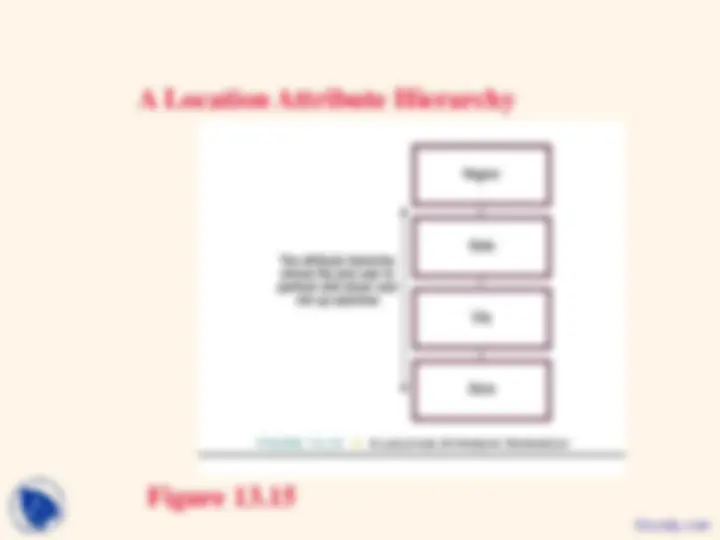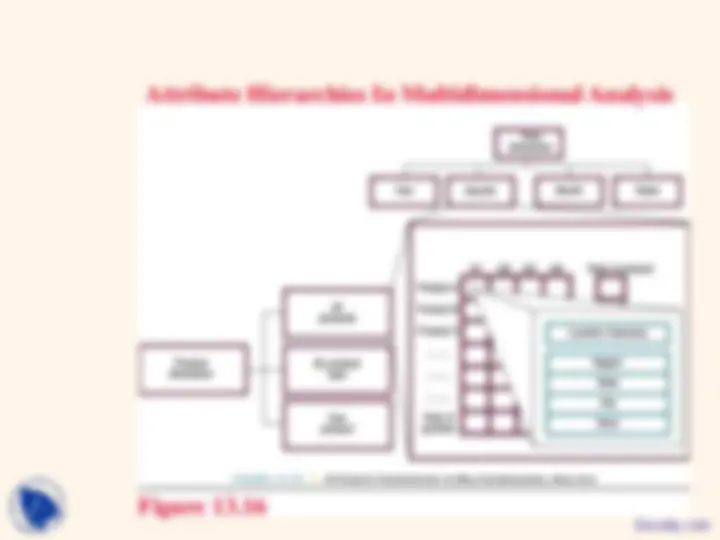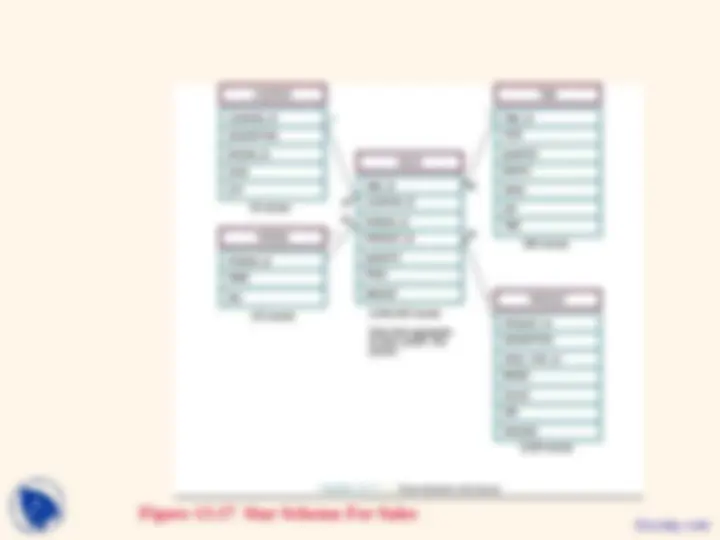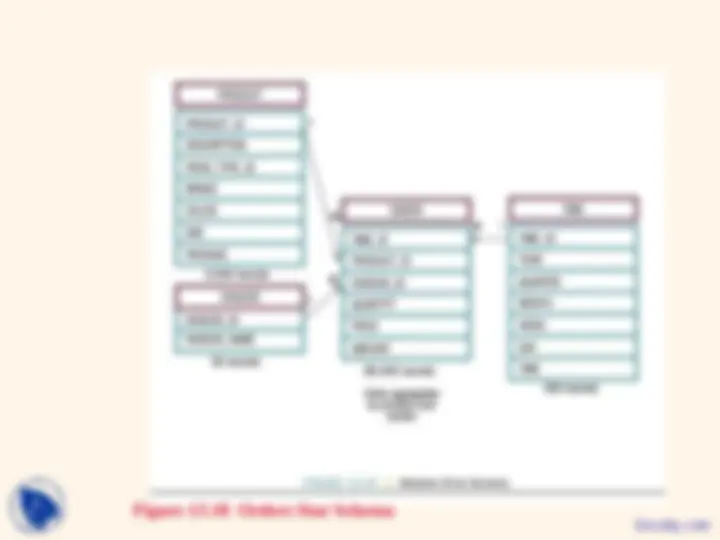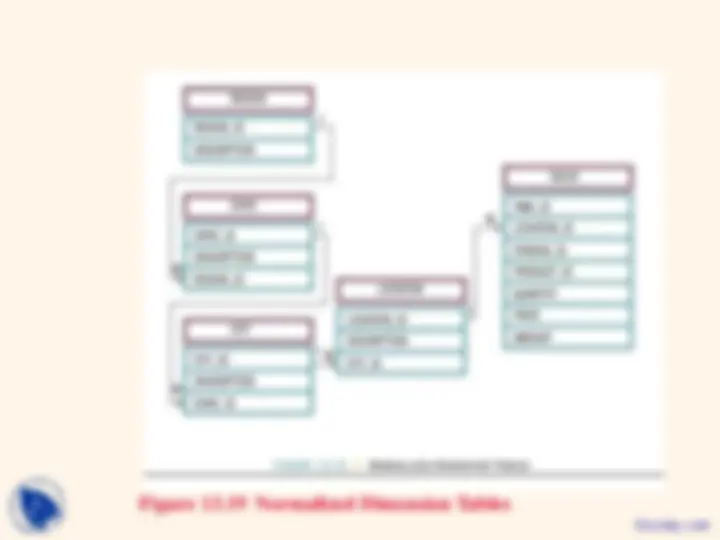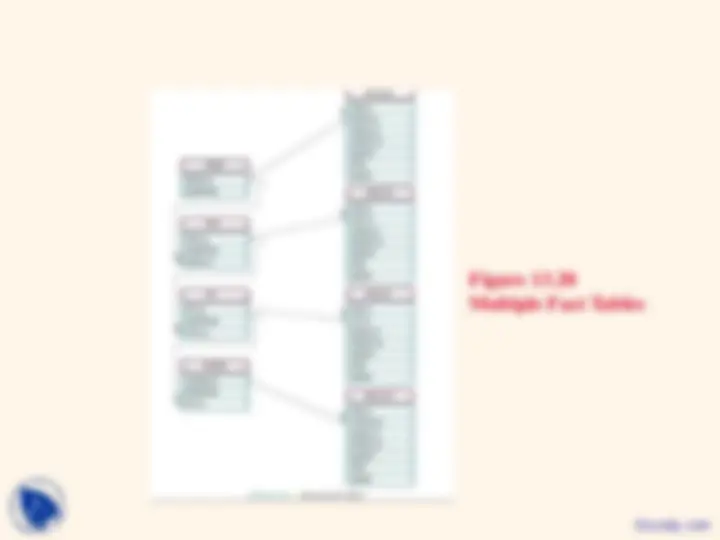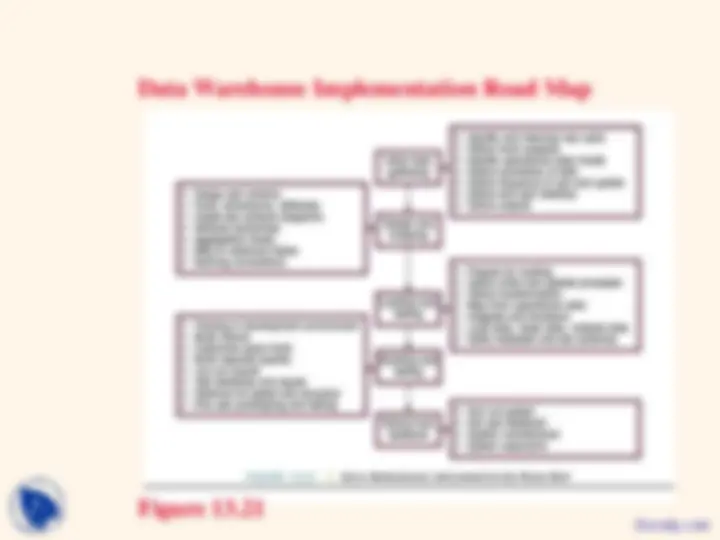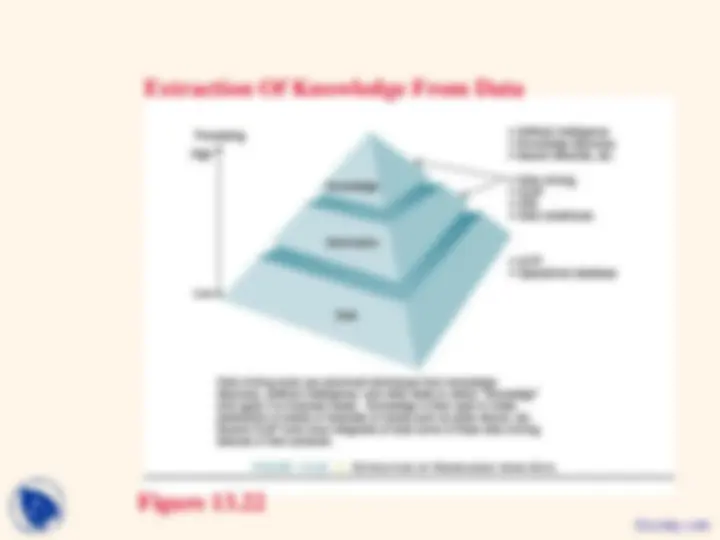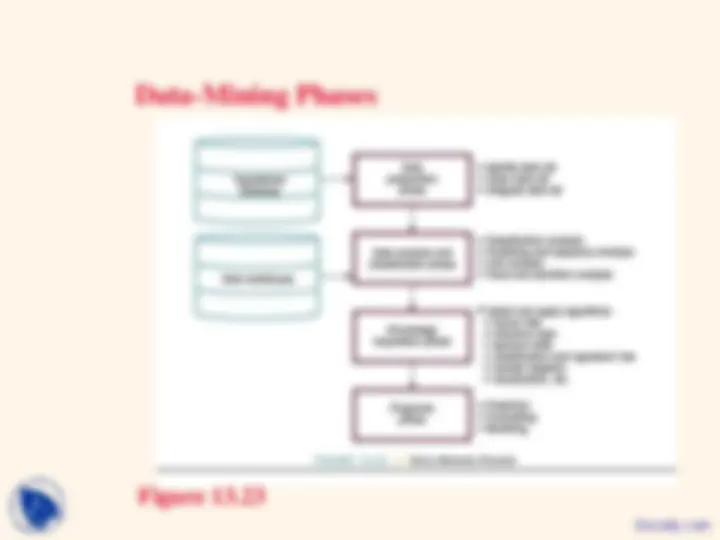Download Data Warehousing - Data Warehousing - Lecture Slide and more Slides Data Warehousing in PDF only on Docsity!
Data Warehousing/Mining
Comp 150
Additional Information
The Need for Data Analysis
Constant pressure from external and internal forces
requires prompt tactical and strategic decisions.
The decision-making cycle time is reduced, while
problems are increasingly complex with a growing number of internal and external variables.
Managers need support systems for facilitating quick
decision making in a complex environment.
Decision support systems (DSS).
Decision Support Systems
Decision Support is a methodology (or a series of methodologies) designed to extract information from data and to use such information as a basis for decision making.
A decision support system (DSS) is an arrangement of computerized tools used to assist managerial decision making within a business.
- A DSS usually requires extensive data “massaging” to produce information.
- The DSS is used at all levels within an organization and is often tailored to focus on specific business areas or problems.
- The DSS is interactive and provides ad hoc query tools to retrieve data and to display data in different formats.
Decision Support Systems
Four Components of a DSS
- The data store component is basically a DSS database.
- The data extraction and filtering component is used to extract and validate the data taken from the operational database and the external data sources.
- The end user query tool is used by the data analyst to create the queries that access the database.
- The end user presentation tool is used by the data analyst to organize and present the data.
Decision Support Systems
Operational Data vs. Decision Support Data
- Most operational data are stored in a relational database in which the structures tend to be highly normalized.
- The operational data storage is optimized to support transactions that represent daily operations.
- Whereas operational data capture daily business transactions, DSS data give tactical and strategic business meaning to the operational data.
Decision Support Systems
Three Main Areas in Which DSS Data Differ from Operational Data
- Time span Operational data represent current (atomic) transactions. DSS data tend to cover a longer time frame.
- Granularity Operational data represent specific transactions that occur at a given time. DSS data must be presented at different levels of aggregation.
- Dimensionality Operational data focus on representing atomic transactions. DSS data can be analyzed from multiple dimensions. Docsity.com
Table 13.2 Contrasting Operational And DSS Data Characteristics
Decision Support Systems
The DSS Database Requirements
- Database Schema The DSS database schema must support complex (non- normalized) data representations. The queries must be able to extract multidimensional time slices.
Yearly Sales Summaries, Two Stores and Two Departments Per Store, Millions Of Dollars
Table 13.
Decision Support Systems
- Data Extraction and Loading The DBMS must support advanced data extracting and filtering tools. The data extraction capabilities should support different data sources and multiple vendors. Data filtering capabilities must include the ability to check for inconsistent data or data validation rules. The DBMS must support advanced data integration, aggregation, and classification capabilities.
Decision Support Systems
- End-User Analytical Interface The DSS DBMS must support advanced data modeling and data presentation tools, data analysis tools, and query generation and optimization components. The end user analytical interface is one of the most critical components.
- Database Size Requirements DSS databases tend to be very large. The DBMS must be capable of supporting very large databases (VLDB). The DBMS may be required to use advanced hardware, such as multiple disk arrays and multiple-processor technologies. Docsity.com
The Data Warehouse
The Data Warehouse is an integrated, subject-
oriented, time-variant, non-volatile database
that provides support for decision making.
- Integrated The Data Warehouse is a centralized, consolidated database that integrates data retrieved from the entire organization.
- Subject-Oriented The Data Warehouse data is arranged and optimized to provide answers to questions coming from diverse functional areas within a company.
Table 13.6A Comparison Of Data Warehouse And Operational Database Characteristics
Creating A Data Warehouse
Figure 13.





